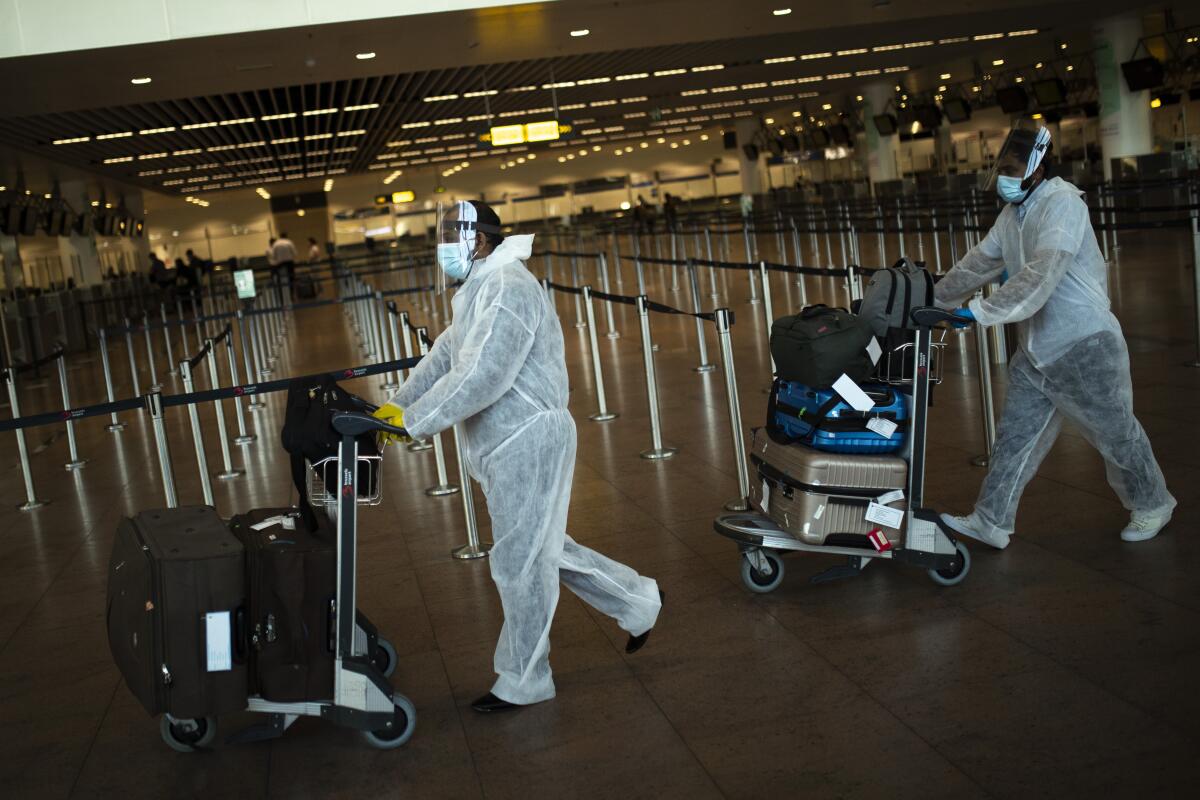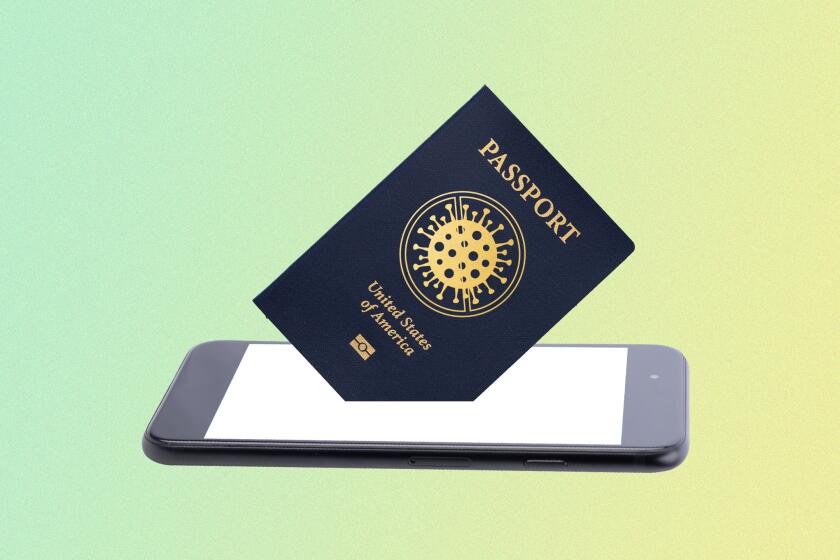EU sets out plan to allow travel using passes showing vaccination, coronavirus status

- Share via
BRUSSELS — The European Union’s executive body Wednesday proposed issuing certificates that would allow EU residents to travel freely across the 27-nation bloc by the summer as long as they have been vaccinated, tested negative for the coronavirus or recovered from COVID-19.
With summer looming and tourism-reliant countries eager for visitors, the European Commission wants to facilitate travel between EU member nations for the bloc’s 450 million residents. The plan is set to be discussed during a summit of EU leaders next week.
“We all want the tourist season to start. We can’t afford to lose another season,” European Commission Vice President Vera Jourova told Czech public radio. “Tourism and also culture and other sectors that are dependent on tourism terribly suffer. We’re talking about tens of millions of jobs.”
The topic has been discussed for weeks and proved to be divisive. The travel industry and Southern European countries dependent on tourism, such as Greece and Spain, have been pushing for quick introduction of the measure, which could help avoid quarantines and testing requirements.
But several member states, including France, argued that it would be premature and discriminatory to introduce such passes since a large majority of EU citizens haven’t had access to vaccines so far.
According to data compiled by the European Center for Disease Prevention and Control, fewer than 5% of European citizens have been fully vaccinated amid delays in deliveries and production of vaccines. The European Commission, however, remains confident that it can achieve its goal of vaccinating 70% of the EU adult population by the end of the summer.
If you’re a traveler, your future may be determined by your health documentation as the world grapples with COVID-19.
To secure approval from all member states, the commission proposed that so-called Digital Green Certificates would be granted free of charge to EU residents who can prove that they have been vaccinated, and also to those who test negative for the coronavirus or have proof they’ve recovered from a bout with COVID-19.
“Being vaccinated will not be a precondition to travel,” the commission said. “All EU citizens have a fundamental right to free movement in the EU, and this applies regardless of whether they are vaccinated or not. The Digital Green Certificate will make it easier to exercise that right, also through testing and recovery certificates.”
Greek Prime Minister Kyriakos Mitsotakis said the certificates “will help boost tourism and the economies that rely heavily on it.” Europe’s aviation sector urged EU governments to ensure that the passes are operational in time for the peak of the summer travel season.
The commission proposed that all COVID-19 vaccines authorized by the European Medicines Agency be automatically recognized, but it also offered governments the possibility of including other vaccines, like Russia’s Sputnik or China’s Sinovac, that haven’t received EU market authorization.
The Danish government says that a digital passport showing whether someone has been vaccinated against the coronavirus would help revive travel.
The European Commission guaranteed that “a very high level of data protection will be ensured” and said the certificates would be issued in digital format to be shown either on smartphones or paper.
EU officials also hope that vaccine certificates will convince member states that have introduced travel restrictions aimed at slowing down the pace of new infections to lift their measures. The EU’s executive arm has previously warned six countries that their travel-limiting measures could undermine the core EU principle of free travel and damage the single market.
The commission said the certificates should be suspended once the World Health Organization declares the end of the COVID-19 pandemic.
If agreed to by the EU leaders, the proposal will need to be approved by EU lawmakers to take effect.
More to Read
Sign up for Essential California
The most important California stories and recommendations in your inbox every morning.
You may occasionally receive promotional content from the Los Angeles Times.












